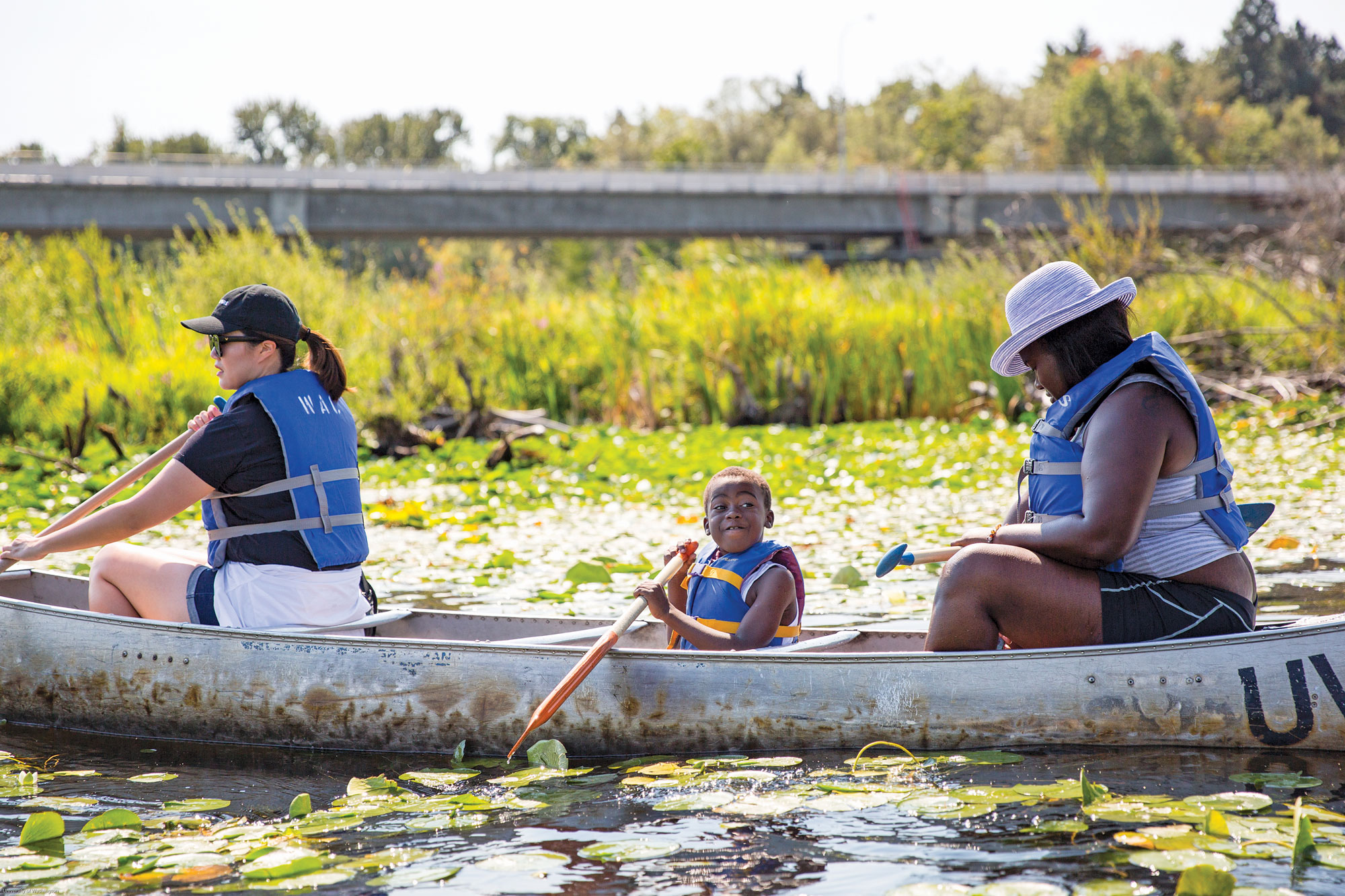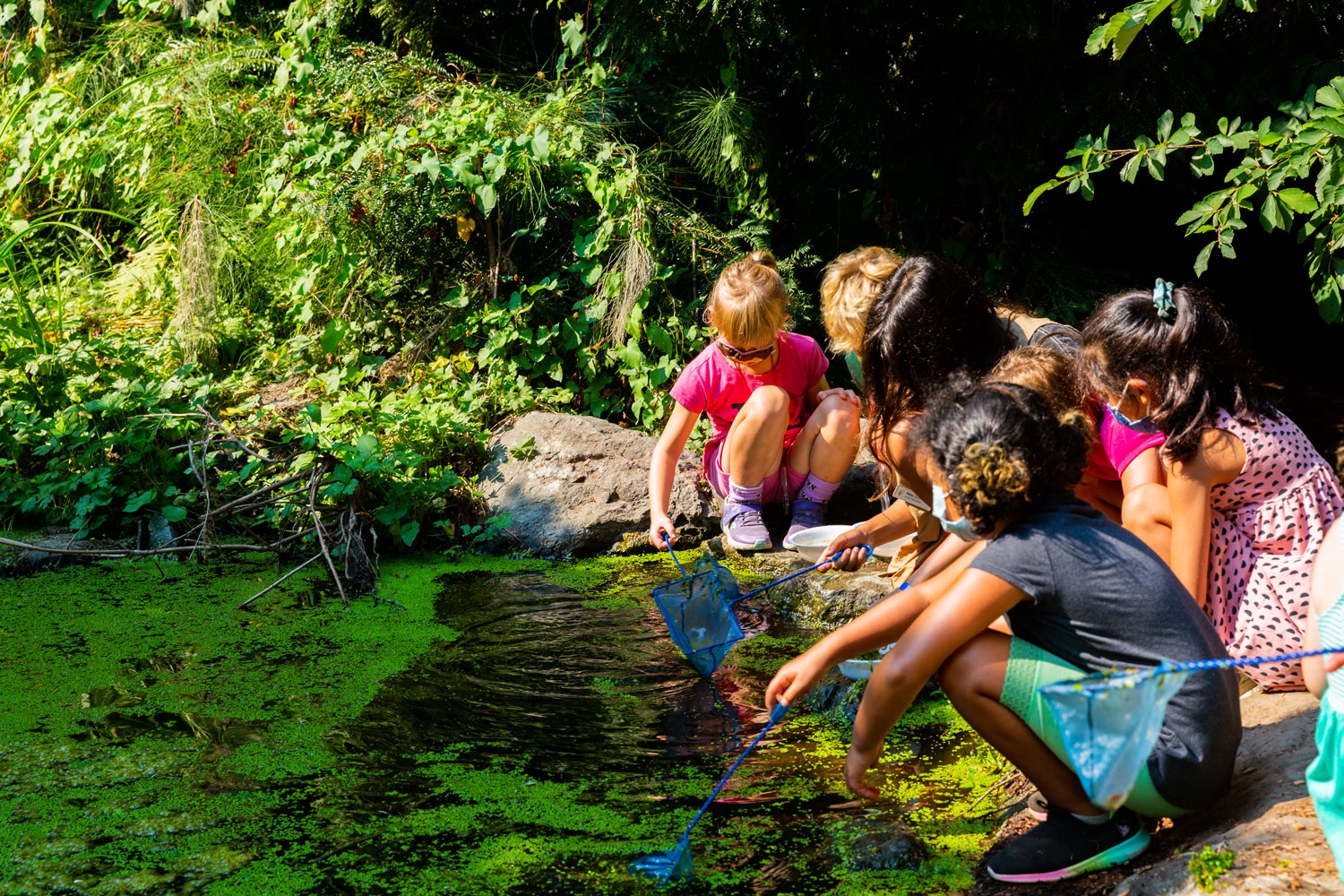Uprooting exclusivity Uprooting exclusivity Uprooting exclusivity
The UW Botanic Gardens team seeks to better serve communities
By Lauren Kirschman | Viewpoint Magazine

Botanical gardens have historically been exclusive spaces. The University of Washington is working to change that starting with its own gardens—the Washington Park Arboretum and the Center for Urban Horticulture.
Many botanical gardens around the world originated as private spaces for predominantly white and wealthy individuals, says Christina Owen, director of the UW Botanic Gardens. And building the collections often involved biopiracy and replacing the plants’ Indigenous names with scientific names that often referenced the collector, she says.
“There’s a history of colonialism,” Owen says. “That is the bedrock on which we’re standing. Plants and collections that exist throughout the world were collected in ways that did not honor the people and did not honor the plants themselves.” Along with the land and the plants, this legacy has come with the many gardens that were gifted to cities and universities.

The UW Botanic Gardens are centers for horticultural research and conservation. Around 600,000 people visit each year.
The UW’s gardens have plants from around the world. In the Pacific Connections Garden in the Washington Park Arboretum, for example, visitors can view plants collected from Cascadia, Australia, China, Chile and New Zealand. “It’s important to be intentional and thoughtful about these plants and places, how they’re collected and grown and the meaning to the people that are from there,” Owen says.
How to address that and make the gardens more inclusive is the challenge for the University’s Botanic Gardens department. When Owen came to the UW in 2021, the department’s equity and justice committee was creating a speaker series to explore how public gardens can meet the needs of diverse local communities. Owen is building out this effort to center equity and social justice work, increase the diversity of staff and enhance the culture of support for employees of color.
The recent speaker series addressed topics like engaging with local Indigenous communities, developing youth leadership, creating job-training programs and finding opportunities for public land to support urban food systems and BIPOC communities. It culminated in September with a town hall to explore a new vision for how public gardens can serve their communities.
“We’re learning a lot about the priorities of the communities that we want to connect with,” says Jessica Farmer, the adult-education supervisor for the gardens. Understanding and responding to those priorities will help build relationships, she adds.
In early October, the outreach continued with the Urban Forest Symposium, which brought tribal leaders and tribal ecologists together with UW scientists and state resource managers. This year’s event, which was held at wǝɫǝbʔaltxʷ—Intellectual House, focused on bridging the gap between tribal practices and local government.
“We’re looking at Indigenous people’s access to and role in the management of the local urban forests,” Farmer says. “We’re looking at an identity shift for our organization, but we need to hear from others in the community and not have it be an insular conversation.”